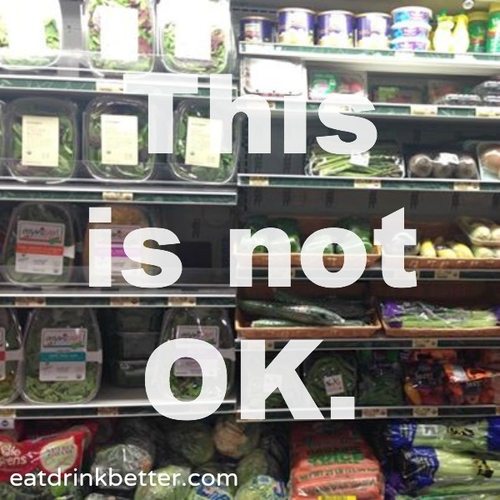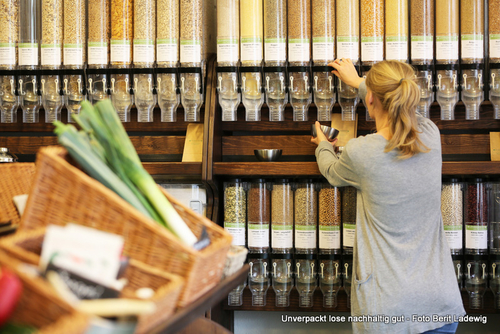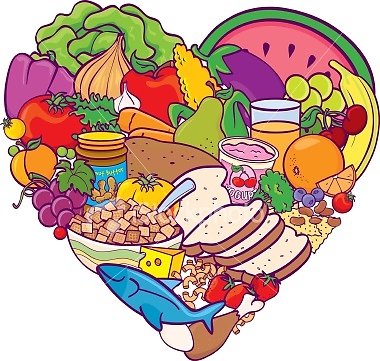Supermarkets are parts of our daily lives; we all visit them multiple times a week, sometimes every day. Buying fruits, yoghurt, meats and fish, anything we crave we can find in the aisle

There is a new trend coming up called the “unpacked” grocery stores. These stores have been popping up all over Europe and the United States, paving the way for a more sustainable, inclusive and cheaper shopping experience for consumers. How does it work though? No cardboard, no cellophane, no throwaway plastic trays, and no brands.All products are displayed in jars, wooden crates, bins, practically anything durable you can put something in. You bring your own jar or container, grab the desired amount of what you need, put it in your own jar, pay for the weighed amount of product you put in your jar and you are ready to go!
A common risk with these ty

What is also interesting is that no amount of product is predefined. Everyone can grab as much or as little as they want based on what they want or need. A perfect solution for singles, specific recipes or even when you are a little low on cash. There is also no minimum limit on how much customers buy, to ensure that they get a fair deal. This is a great solution to the extreme amount of food wasted by consumers on a weekly basis due to over packaging (did you know that around 25% of the annually purchased amount of food goes to waste?!).
Lastly, the emergence of these types of grocery stores ensures economic benefit for local markets as no brand labels are used and the help of local farmers and food producers is well needed. For less developed countries, this would be a great project to invest in. It is a system that feeds itself, figuratively and quiet literally.
Now I’m not saying this is an airtight solution to our wasteful habits, granted not all products can be sold without the help of packaging and these stores are still small and upcoming. But the innovation has a lot of potential. In my opinion it is a cool perspective on frugal innovations. It literally takes away what we do not need (packaging) and generates a sustainable and inclusive end product. Saving money and giving the planet a greener hand, who would not vow for that?
Interested in the concept? Check out the first unpackaged grocery store in the Netherlands: Bag and Buy. http://bagandbuy.nl
Unfortunately their website is completely written in Dutch, sorry!
Sources:
http://www.beunpackaged.com
http://www.onehundreddollarsamonth.com/food-waste-how-much-food-does-the-average-family-throw-away-in-one-year/
http://eatdrinkbetter.com/2014/06/09/6-grocery-stores-packaging-free/
